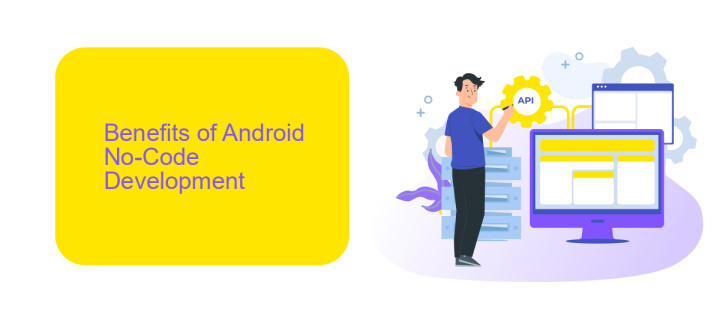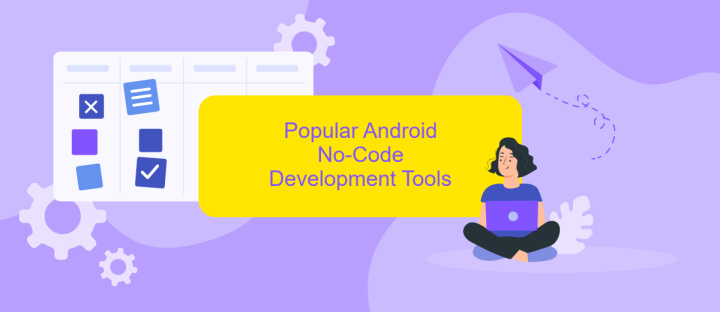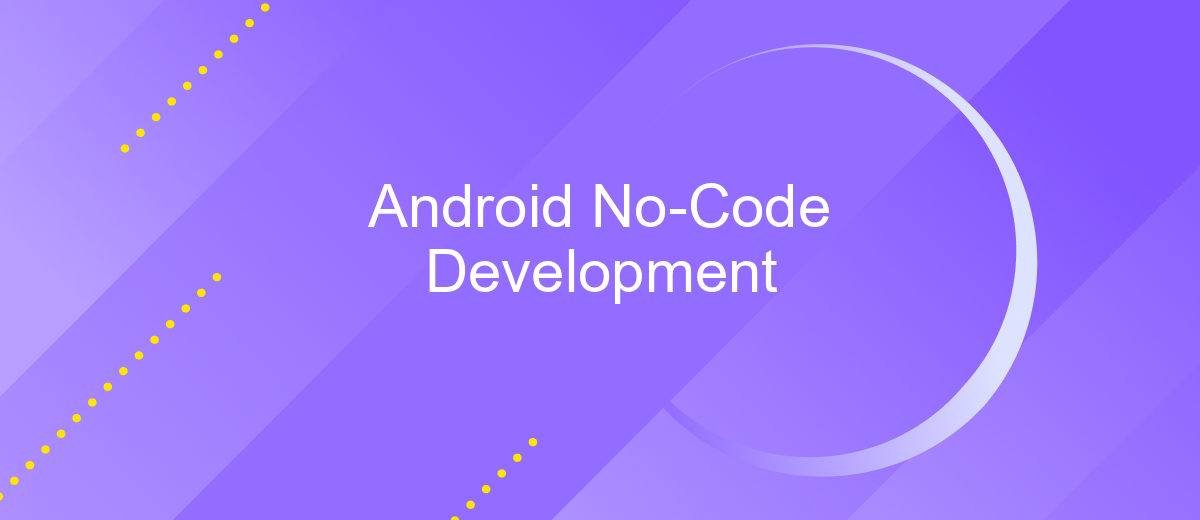Android No-Code Development
In the rapidly evolving tech landscape, Android no-code development has emerged as a game-changer. This innovative approach allows individuals with little to no programming experience to create robust Android applications. By utilizing intuitive drag-and-drop interfaces and pre-built templates, users can bring their app ideas to life quickly and efficiently, democratizing app development and fostering creativity across diverse fields.
Introduction
Android No-Code Development is revolutionizing the way applications are created by enabling users to develop apps without writing a single line of code. This approach democratizes app development, making it accessible to individuals without technical backgrounds. With intuitive drag-and-drop interfaces, anyone can design and deploy functional Android applications quickly and efficiently.
- Ease of Use: No prior coding knowledge required.
- Speed: Rapid development and deployment.
- Cost-Effective: Reduces the need for specialized developers.
- Flexibility: Easily make changes and updates.
Moreover, integrating various services and APIs into your app has never been easier. Tools like ApiX-Drive simplify the process of connecting different applications and automating workflows. By using such platforms, you can effortlessly sync data between your Android app and other services, enhancing functionality and user experience. This makes no-code development not only a viable but also an attractive option for businesses and individuals alike.
Benefits of Android No-Code Development

Android No-Code Development offers numerous benefits, making app creation accessible to a broader audience. One of the primary advantages is the elimination of the need for extensive coding knowledge, allowing individuals with little to no programming experience to build functional and visually appealing applications. This democratization of app development accelerates the process, enabling faster prototyping and reducing time-to-market for new ideas.
Another significant benefit is the integration capabilities provided by no-code platforms. Tools like ApiX-Drive facilitate seamless connections between different services and applications, streamlining workflows and enhancing productivity. By using such integrations, developers can automate various tasks, such as data synchronization and user notifications, without writing complex code. This not only saves time but also reduces the risk of errors, ensuring a more reliable and efficient app development process.
Popular Android No-Code Development Tools

Android no-code development tools have revolutionized the way applications are created, enabling even non-developers to build functional apps. These tools offer a range of features that simplify the development process, making it accessible to a broader audience.
- AppGyver: A versatile platform that allows users to create complex apps with a simple drag-and-drop interface.
- Thunkable: This tool provides a user-friendly environment to build apps and includes extensive support for integrating APIs.
- Adalo: Known for its ease of use, Adalo helps in creating apps quickly and offers various pre-built templates.
- ApiX-Drive: A powerful service that facilitates the integration of various APIs, making it easier to connect different services without coding.
- Bubble: Although more web-focused, Bubble offers robust features for creating responsive Android applications.
These tools not only simplify the app development process but also provide extensive support for integrating third-party services. For instance, ApiX-Drive allows seamless API integrations, making it easier to connect your app with other platforms and services. This capability is crucial for building versatile and functional Android applications without writing a single line of code.
Case Studies and Best Practices

In recent years, numerous companies have successfully implemented no-code solutions for Android app development, streamlining their processes and reducing costs. One notable example is a small retail business that used a no-code platform to create a custom inventory management app, significantly improving their operational efficiency.
Another case involves a non-profit organization that developed a volunteer coordination app without any coding knowledge. This allowed them to manage events and volunteers more effectively, ultimately increasing their community impact. By leveraging no-code tools, they saved both time and resources that would have otherwise been spent on hiring developers.
- Define clear objectives and requirements before starting.
- Choose the right no-code platform that fits your needs.
- Utilize integrations like ApiX-Drive to connect various services seamlessly.
- Test your app thoroughly before deployment.
- Continuously gather feedback and make necessary adjustments.
By following these best practices, businesses and organizations can leverage no-code development to create powerful Android applications quickly and efficiently. The flexibility and ease of use offered by no-code platforms make them an attractive option for those looking to innovate without the need for extensive technical expertise.
Future of Android No-Code Development
The future of Android no-code development looks promising as it continues to democratize app creation for individuals and businesses. With advancements in AI and machine learning, no-code platforms are becoming more intuitive and powerful, allowing users to build sophisticated applications without writing a single line of code. These platforms are not only reducing development time but also lowering costs, making app development accessible to a broader audience. As a result, we can expect a surge in innovative apps tailored to niche markets and specific needs.
Moreover, the integration capabilities of no-code platforms are expanding, enabling seamless connections with various third-party services. For instance, ApiX-Drive facilitates easy integration of apps with numerous other platforms, streamlining workflows and enhancing functionality. This trend towards enhanced interoperability will likely continue, further simplifying the development process and enabling more complex applications. In summary, the future of Android no-code development is set to empower more creators, foster innovation, and drive the digital transformation of industries.
FAQ
What is Android No-Code Development?
Can I integrate third-party services into my no-code Android app?
What are the limitations of Android No-Code Development?
Is it possible to update my no-code Android app after it's published?
How secure are no-code Android apps?
Time is the most valuable resource for business today. Almost half of it is wasted on routine tasks. Your employees are constantly forced to perform monotonous tasks that are difficult to classify as important and specialized. You can leave everything as it is by hiring additional employees, or you can automate most of the business processes using the ApiX-Drive online connector to get rid of unnecessary time and money expenses once and for all. The choice is yours!

